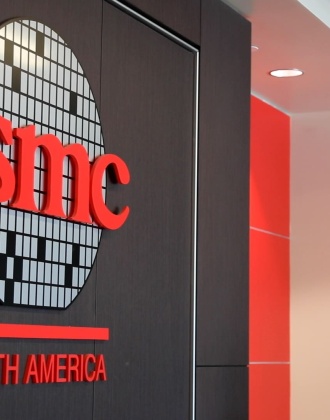

TSMC is facing dilemma as the US asks for key data - PingWest
source link: https://en.pingwest.com/a/9425
Go to the source link to view the article. You can view the picture content, updated content and better typesetting reading experience. If the link is broken, please click the button below to view the snapshot at that time.

TSMC is facing dilemma as the US asks for key data
posted on November 1, 2021 9:30 amEditor : Wang Boyuan

Since the growing demand in the Chinese mainland market and the patents granted by the US are equally vital to its long-term stable development, it's quite tangled for the company to choose a side.
- SHARE
Taiwan Semiconductor Manufacturing Co (TSMC), the world's largest chipmaker, has been caught in the crossfire between the US and China for some time, and most recently it is facing increasing pressure to balance the interests of both sides.
Last month, the US Commerce Department told major international semiconductor firms, such as TSMC, Samsung, and Intel, to submit supply chain details, including inventory data, to help ease the global chip shortage.
Although TSMC said it would not disclose sensitive information, especially related to its customers, Taiwan’s local media reported on October 23 that the chipmaker will hand over the data required by the US before November 18.
Shortly, the belligerent tabloid Global Times released an editorial, claiming that TSMC would be at risk of violating Chinese laws because the data that the company and other chipmakers are required to provide will inevitably include a lot of order and production information specific to mainland companies.
"When these chipmakers offer sensitive information about Chinese clients to the US, they should be advised not to violate Chinese laws and regulations, which may mean consequences for their future operations in China," the newspaper said, adding that it will not be hard for Chinese clients to find alternative chip suppliers if necessary.
As the world's second-largest semiconductor consumer, China is a latecomer in chip manufacturing, but it plays a major role in assembling and packaging in the industry. That's why Global Times wrote in the article that China can pass on the problems and cost of semiconductors to its export partners such as the US.
Over the years, China has invested heavily into boosting its domestic chip industry to become more self-sufficient. Still, it's struggled to catch up with rivals since it has to rely on foreign tools to manufacture advanced chips.
Currently, the US does not dominate the production of semiconductors, but is abundant in knowledge and patents, linking together a global supply chain. According to Forbes, 8 of the top 15 semiconductor companies in global sales are in the US, and the rest are located in Europe, South Korea, and Taiwan.
The tech wrestling between China and the US is more like a battle for semiconductors because whether it is artificial intelligence, 5G networks, or cloud computing, it needs to be built on chips. Therefore, both parties are eager to win over TSMC, which owns over half of the global foundry market.
When it comes to designing highly complex semiconductors, the US is the undisputed global leader. But in terms of manufacturing, the situation is not that promising. According to Fortune, Asia now dominates manufacturing globally and by 2030 is projected to account for 83% of the world’s semiconductor manufacturing, with China accounting for the greatest growth.
Morris Zhang, the founder of the company, is feeling the torture of building a foundry in the US and questioning Washington's efforts to rebuild semiconductor manufacturing.
"Even after you spend hundreds of billions of dollars, you will still find the supply chain to be incomplete, and you will find that it will be very high cost, much higher costs than what you currently have," Chang said on October 26. In May last year, TSMC announced it would invest $35 billion in the construction of a new chip factory in nearby Phoenix, Arizona.
TSMC, which opened a factory in Nanjing in 2015, announced in June that it will invest $2.8 billion in the mainland to ramp up the production of semiconductors used in automobiles.
The Taiwan Affairs Office under the State Council said on Wednesday that it will monitor the ongoing situation in which TSMC submits proprietary business data, including commercial secrets, to the US government.
Recommend
About Joyk
Aggregate valuable and interesting links.
Joyk means Joy of geeK